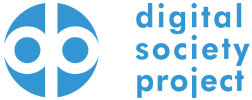Digital Society Project Working Papers provide an outlet for exciting new research on the intersection of the internet and politics. If you use DSP data in your work and would like to contribute a working paper to the series, please let us know here!
DSP Working Paper #1: Introducing the Digital Society Project
With this working paper we introduce a new project—the Digital Society Project (DSP)–which aims to answer some of the most important questions surrounding the intersection of the internet and politics. We introduce the DSP dataset, the product of a global survey of hundreds of country and area experts, and preview key descriptive patterns from this data collection effort. The data covers virtually all countries in the world from 2000 to 2021 and measures a set of 35 new indicators of polarization and politicization of social media, misinformation campaigns and coordinated information operations, and foreign influence in and monitoring of domestic politics. We expect that the data and the research produced by this project will be of great interest to both the academic and policy communities, at a time when understanding the political and social consequences of the internet is rapidly increasing.
DSP Working Paper #2: Norms and rage: Gender and social media in the 2018 U.S. mid-term elections
Previous research shows women candidates face double-standard with regard to fitness for office: women ought to be kind but leaders ought to be aggressive and agentic. At the same time, there is traditional division of what constitutes “women’s” issues (e.g. health-care) vs “male” (e.g. economy). Do these norms about what women politicians ought to be and talk about hurt or help them during elections? We investigate the case of U.S. 2018 mid-term elections on Twitter. Our findings suggest that engaging with “women’s” issues by female candidates as well as tweeting angrily is associated with higher likelihood of being elected. However, women candidates who use angry speech on Twitter, are more likely to also receive tweets with abusive language, in particular by other women. Thus, we show that social media could help female candidates to break stereotypes, and present themselves as nuanced candidates who can both stand for women’s issues but also be aggressive and leader-like.
DSP Working Paper #3: Terrorism and Internet Censorship
The internet provides a powerful tool to terror organizations, enhancing their public messaging, recruitment ability, and internal communication. In turn, governments have increasingly moved to disrupt terror organizations’ internet communications, and even democracies now routinely work to censor terrorist propaganda, and related political messaging, in the name of national security. We argue that democratic states respond to terror attacks by increasing internet censorship and broadening their capacity to limit the digital dissemination of information. This article builds on previous work suggesting this relationship, substantially improving measurement and estimation strategy. We use latent variable modeling techniques to create a new measure of internet censorship, cross nationally and over time, from internet firm transparency reports, and compare this measure to an expert-survey based indicator. Leveraging both measures, we use a variety of panel specifications to establish that, in democracies, increases in terror predict surges in digital censorship. Finally, we examine the posited relationship using synthetic control models in a liberal democracy that experienced a large shock in terror deaths, France, showing that digital censorship ramped up after several large terrorist attacks.
